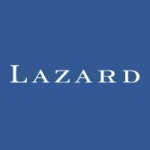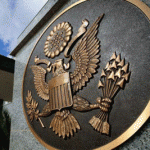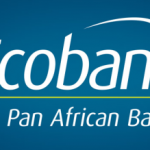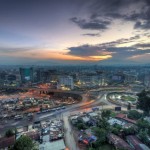 ADDIS ABABA (Reuters) – Ethiopia plans a debut Eurobond once it has secured a credit rating but will not open its “cash cow” telecoms firm or state banks to foreigners while their revenues are needed to fund new infrastructure, the prime minister said.
ADDIS ABABA (Reuters) – Ethiopia plans a debut Eurobond once it has secured a credit rating but will not open its “cash cow” telecoms firm or state banks to foreigners while their revenues are needed to fund new infrastructure, the prime minister said.
Hailemariam Desalegn’s comments in a Reuters interview on Thursday mean two of the sectors most attractive to foreign investors will be off limits for years, disappointing firms that are eager to tap one of Africa’s fastest growing economies.
It also underlines that Hailemariam, who is a little more than a year into office, has no plan to shift from the state-led policies of his revered predecessor Meles Zenawi, who died last year, even as economists say private business is being squeezed.
But a Eurobond issue would give investors, who have snapped up Sub-Saharan sovereign bonds, another route into Africa’s second most populous nation, which is keen to shift its largely agrarian economy towards textiles and other manufacturing.
“One company is working on the rating process that will take some time,” Hailemariam told Reuters in Addis Ababa, when asked if Ethiopia would follow other African nations with a bond sale.
Without giving a timeline, the prime minister said securing a rating would help it progress towards an issue, adding that the plans involved “not only a Eurobond but other bonds as well”.
That the Horn of Africa country can contemplate such a move shows the changes that have occurred in the past two decades.
Beset by “Red Terror” purges of communist rule in the 1970s and devastating famine in the 1980s, Ethiopia has been a star of the “Africa Rising” narrative, with double-digit growth and an aggressive programme for new railways, roads and dams.
From the hilltop offices set in the former palace gardens of Emperor Haile Selassie, a construction boom is plainly visible in the capital below, cut through by brand new highways.
But growth has slowed – to about 7 percent according to the International Monetary Fund, although Ethiopian officials say it is more – and the government has faced more criticism that its command economy is also trampling on political freedoms.
COMPETITION
Hailemariam, 48, an academic who ran a water technology institute and was later foreign minister, said this was no time for a change of tack, either by selling monopoly Ethio Telecom or opening up the banking industry – now dominated by three state banks – to foreigners.
“Why does the government engage in infrastructure development? It is simply to make the private sector competitive because in Africa the lack of infrastructure is the main bottleneck,” said the premier, whose post is the top political position in the country. Ethiopia’s presidency is ceremonial.
“From where do we get this financing? We get this from government banks,” he said. “We engage ourselves in railway construction simply because we get revenues from telecoms.”
He said foreign investors salivated about telecoms because it was a “cash cow” that required none of the effort to make profits that were needed to establish factories in manufacturing, the area which would create jobs and growth.
With a fast-growing population of 90 million, most of whom are subsistence farmers, the government has an enormous task if it is to achieve its target of middle income status by 2025.
The World Bank defines middle income as gross national income per capita of $1,430. Ethiopia’s was $410 in 2012.
But the World Bank, IMF and others say the rush to build infrastructure, including what will be Africa’s largest dam, a $4.7 billion self-financed project with 6,000 megawatts of hydropower, is starving private enterprise of cash.
Hailemariam said the criticism did not stack up, saying the government was channelling loans to business, while income for the state from selling licences or taxes could not match Ethio Telecom’s annual revenue of 6 billion birr ($318 million).
He said neighbours which have opened up their banking industry to foreigners had lost a source of funds. “They have handed over their banks to the private sector and the private sector is not giving them loans for infrastructure development.”
“HUGE POTENTIAL”
Instead, he said Ethiopia wanted foreigners to invest in manufacturing, a sector that accounts for just 4 percent of economic output. It is gathering attention.
Ethiopia drew in $2 billion of foreign direct investment in the financial year 2012/13 and, at a “minimum”, aimed to match that in each of the next two years, Hailemariam said, adding U.S., European and Asian firms were among those interested.
He listed names such as retailer Wal-Mart, fashion firm Hennes & Mauritz and supermarket chain Tesco.
The Ethiopian Investment Agency has reported interest from Unilever and Nestle, while Samsung is looking at building an assembly plant in the country.
“So lots of them are coming because there is huge potential in light manufacturing in Ethiopia,” the prime minister said, adding that new industrial zones would offer tax breaks, free land and other benefits and could speed up investment flows.
“If we move very fast then we can attract even more,” he said, adding that growth was expected to pick up to 11 percent in 2013/14 and 2014/15 – more than the IMF forecasts.
One of the few African nations that was never colonised – although briefly occupied by Italy in World War Two – Ethiopia stills views itself as an exception on the continent.
Other states have freed up their economies for growth, but two-thirds of Ethiopia’s 8.5 percent 2011/12 expansion could be ascribed to public investment, the World Bank said.
But the heavy hand of state has also drawn criticism from rights groups and government opponents who say civil liberties have been sacrificed in the pursuit of centralised control.
Human Rights Watch says the government’s sweeping application of a 2009 anti-terrorism law has led to the conviction of journalists – 13 of them since 2011. There is only one opposition member in the 547-seat parliament.
“No one has been convicted because of the speech they made or the article they have written,” Hailemariam said, dismissing the criticism. “Democracy is a process … and Ethiopia is on the right track building a democratic culture.”
(Writing by Edmund Blair; Editing by Richard Lough and Catherine Evans)
BY EDMUND BLAIR AND AARON MAASHO




























Join Conversations